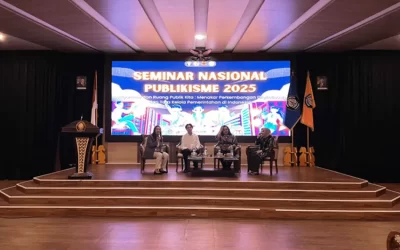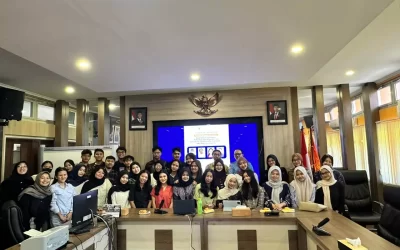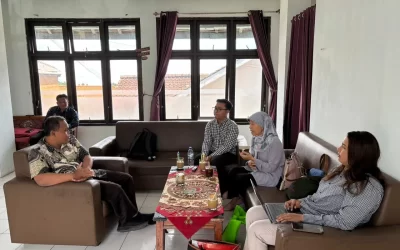Rowosari, Tembalang — Sunday, June 22, 2025, As a tangible contribution to community empowerment, the 59th Community Service Program (KKN) team from Diponegoro University launched a program entitled “Technological Innovation to Enhance MSME Production.” This event took place in RW 1 and RW 2 of Rowosari Subdistrict, Tembalang District, Semarang City, from 3:00 PM to 4:00 PM local time.
The program was an initiative of multidisciplinary students who are part of the KKN-59 team, with full support from field supervisors and the presence of community figures such as neighborhood heads (RW), community unit leaders (RT), local MSME actors, and residents.
This initiative is also part of the community service implementation under the “Science and Technology for Undip Fostered Villages” (IDBU) scheme, organized by lectures at Universitas Diponegoro. The IDBU program in Rowosari is led by Prof. Dr. Widowati, S.Si., M.Si., and supported by fellow team members Prof. Dr. Titik Ekowati, M.Sc., Dr. Susilo Hariyanto, S.Si., M.Si., and Satriyo Adhy, S.Si., M.T. The collaboration between lecturers and students is expected to strengthen local capacities through sustainable education and technology-based approaches.
The event began with a presentation on Eco-enzyme production by Iqvan Nur Cahyo, followed by an explanation of Good Manufacturing Practices and food product labeling by Muhammad Anugrah.
Next, Rivaldo Enggal highlighted the importance of using QRIS and WhatsApp Bots for MSME players to optimize their sales. Aishyafara Noor Ramadhani discussed the importance of applying Self-Monitoring and Self-Regulation methods in MSME financial recording. Nada Salsabila shared insights on the transformation of MSMEs through the optimization of Google Maps, along with data-based findings on how e-commerce and QRIS outreach programs impacted business interest.
The event concluded with a session by Debyta Zahra on Budikdamber (aquaponic fish farming in buckets) and small-scale fisheries business technology. Participants were also invited to do hands-on practice in making home-scale hydroponics, again guided by Iqvan Nur Cahyo.
Throughout the event, the program ran smoothly and according to the predetermined agenda. One notable positive outcome was the increasing number of participants over time. While attendance was modest at first, enthusiasm from the community continued to grow, eventually exceeding the initial attendance target. This clearly indicated strong interest in the topics being presented.
The response from residents was overwhelmingly positive. They not only paid close attention to the material but also actively participated in the discussion sessions. Several participants even expressed that this was their first time learning about technological innovation in the context of MSME production. Such feedback is a strong indication that the program had a real impact and successfully broadened the perspectives of local entrepreneurs.
Through this activity, students not only applied the knowledge they had gained in university but also honed their communication, social empathy, and leadership skills within the community. For residents, the program is expected to be the starting point for sustainably improving local business capacity.
This program serves as concrete proof that KKN activities are not merely academic obligations but collaborative platforms between students and communities to deliver real, impactful solutions. Amid increasingly complex challenges, the synergy between technological innovation and local wisdom is a key component in building MSMEs that are resilient, adaptive, and competitive.






